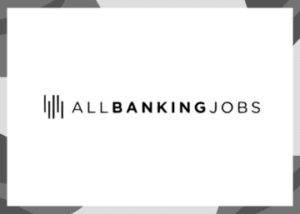Donald Trump’s presidency has been marked by a strong emphasis on deregulation, particularly in the financial sector. With his administration’s focus on reducing government oversight, the banking industry has experienced significant shifts, creating both challenges and opportunities for banking professionals. As Trump’s economic policies continue to unfold, it’s crucial for those in the banking sector to understand how regulatory changes may impact their careers and what new opportunities may arise.
In this blog, we’ll explore the effects of Trump’s deregulation agenda on the banking industry and how professionals can position themselves to take advantage of these changes.
1. The Shift Toward Deregulation: What It Means for the Banking Industry
One of Trump’s most notable economic strategies has been reducing the regulatory burden on businesses, including banks. By rolling back key provisions of the Dodd-Frank Act, which was implemented after the 2008 financial crisis, Trump has made it easier for banks to operate without as many regulatory restrictions. While this shift has been praised by some as a way to promote economic growth, others worry it could increase financial risk.
Impact on the Banking Industry: For banks, the reduction in regulations means greater flexibility to offer financial products, pursue business ventures, and engage in more competitive practices. However, this also means more responsibility for managing risk, ensuring compliance, and adapting to a constantly evolving regulatory environment.
Impact on Banking Careers: As regulations ease, banking professionals who specialize in compliance, risk management, and legal affairs will need to adapt to a new landscape. While there may be fewer regulations to follow, the need for skilled professionals to ensure that banks are not exposed to unnecessary risk will remain high. This shift will create a demand for professionals who can navigate this changing regulatory environment while ensuring that banks are still operating within the bounds of legal and ethical standards.
2. The Growing Need for Risk Management and Compliance Experts
Despite the relaxation of some regulations, banks still face the challenge of managing risk in a volatile global economy. Trump’s focus on deregulation means that banks will need to be more proactive in identifying and mitigating risks, particularly in areas like lending, foreign investments, and financial markets.
Impact on the Banking Industry: As banks are given more freedom to operate, they may take on riskier financial products, such as high-yield loans or more complex investment strategies. This increased risk could lead to higher demand for professionals in risk management, internal auditing, and compliance to ensure that banks can avoid legal and financial pitfalls.
Impact on Banking Careers: Banking professionals with expertise in risk assessment, financial regulations, and compliance will be in high demand. These professionals will help banks navigate a less regulated environment while ensuring that they maintain financial stability and compliance with the laws that still apply. The shift could lead to more job opportunities in roles such as risk analysts, compliance officers, and financial auditors.
3. Opportunities in Corporate Governance and Legal Advisory
Trump’s deregulation agenda has also impacted corporate governance in the banking industry. With fewer regulatory constraints, banks have greater freedom to make decisions about mergers, acquisitions, and other major business moves. However, this also increases the need for strong corporate governance to ensure ethical decision-making and protect stakeholders.
Impact on the Banking Industry: With fewer regulations, banks may need to rely more on internal governance mechanisms and legal advice to ensure they are acting in the best interests of shareholders, customers, and the broader economy. This has created a greater need for professionals who can provide legal guidance, manage corporate governance issues, and ensure that banks are following best practices.
Impact on Banking Careers: For banking professionals with expertise in corporate governance, legal advisory, and mergers and acquisitions, this shift opens up new career paths. These professionals will be critical in guiding banks through the complexities of making major business decisions in a deregulated environment, ensuring that banks remain compliant with legal and ethical standards.
4. The Need for Strategic Advisory Services
While deregulation may offer banks more flexibility, it also presents new challenges. In particular, multinational banks may face the difficulty of navigating a complex web of regulatory environments across different regions, as countries outside the U.S. continue to have stricter financial regulations.
Impact on the Banking Industry: Multinational banks will require strategic advisors who can navigate the complexities of both domestic deregulation and international regulatory standards. This could involve advising on cross-border transactions, foreign investment strategies, and navigating the financial regulations of countries with stricter rules.
Impact on Banking Careers: Professionals with expertise in international finance, cross-border regulations, and strategic advisory will be in high demand. As multinational banks adjust their strategies to accommodate Trump’s policies while remaining compliant in other regions, banking professionals with global experience will be sought after to help manage regulatory risk and advise on international operations.
5. Opportunities in Financial Technology (Fintech)
Trump’s economic policies have also created an environment where technology and innovation are becoming increasingly important in the banking sector. With deregulation opening up new opportunities, fintech companies are growing rapidly, offering digital payment solutions, blockchain technologies, and online lending platforms. Banks are looking to partner with or invest in these technologies to stay competitive in the evolving financial landscape.
Impact on the Banking Industry: With deregulation allowing banks more flexibility in exploring new technologies, fintech companies are poised to benefit. Banks are likely to collaborate more with fintech startups to offer innovative financial products that appeal to tech-savvy customers, especially in areas like payments, lending, and blockchain-based financial services.
Impact on Banking Careers: Professionals with expertise in fintech, digital banking, and cybersecurity will find new opportunities in the industry. As traditional banks work to integrate fintech solutions into their offerings, they will need professionals who can bridge the gap between technology and finance. This creates a rising demand for roles such as fintech specialists, digital banking experts, and cybersecurity professionals within traditional banking institutions.
6. The Importance of Staying Informed: Continuous Learning and Adaptation
The regulatory landscape under Trump’s administration is expected to continue evolving. As a result, banking professionals must stay informed about changes in financial regulations, compliance standards, and industry trends. Continuous learning and adaptation will be key to thriving in a more deregulated environment.
Impact on the Banking Industry: Banks will need to invest in ongoing training and development for their staff to ensure that they are prepared to navigate the regulatory changes ahead. The shifting landscape means that banking professionals must be adaptable, proactive, and ready to learn new skills to stay competitive.
Impact on Banking Careers: Banking professionals who invest in continuous education, whether through certifications, advanced degrees, or specialized training, will have a distinct advantage in this evolving regulatory environment. Whether it’s staying up-to-date with new compliance standards, understanding emerging technologies, or developing expertise in international regulations, continuous learning will be crucial to long-term success in the banking sector.
Conclusion
Trump’s deregulation policies have created significant shifts in the banking sector, opening up opportunities for professionals who are ready to adapt. As banks navigate a less regulated environment, there will be increased demand for professionals in risk management, compliance, corporate governance, legal advisory, and fintech. By staying informed and continuously updating their skills, banking professionals can position themselves for success in this changing landscape.
If you’re looking for career opportunities in banking, explore job listings at “All Banking Jobs” to find roles that align with your skills and expertise in the evolving financial sector.






